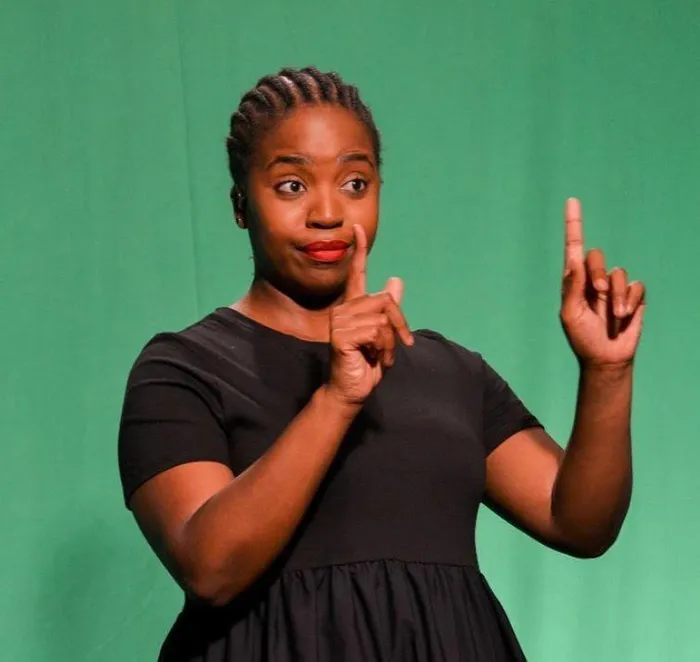
ANDISWA Gebashe is a sign language activist who was instrumental in having sign language adopted as the official language in South Africa
Image: SUPPLIED
ANDISWA GEBASHE
IN July 2023, President Cyril Ramaphosa signed into law the constitutional recognition of South African Sign Language (SASL) as the 12th official language of the Republic.
This was not a symbolic or charitable gesture; it was a long-overdue affirmation of the linguistic and human rights of Deaf South Africans and all who communicate through SASL, including Children of Deaf Adults (CODAs) and members of the broader signing community.
Yet the work does not end with recognition. Language is not a trophy for display; it is a living, breathing means of connection.
For too long, Deaf South Africans have had to navigate a society that often sidelines them in education, employment, public services, and civic participation. As a country committed to justice and equality, we must do better.
SASL must now be meaningfully integrated across all spheres of government and society, from the classroom to the courtroom, from health clinics to international diplomacy.
In a democracy such as ours, the true measure of inclusion is not found solely in policy but in the daily practices that make every citizen feel seen, heard, and valued.
It is for this reason that I write today about a matter that goes beyond accessibility; it speaks to the soul of our nation: the elevation and integration of SASL as a cornerstone of communication, dignity, and unity in our society.
Like many South Africans in different sectors of society, I welcome the initiative of the National Dialogue led by foundations and civil society and supported by the government and the private sector.
This is a step in the right direction for the country as we are faced with many challenges post-1994. President Cyril Ramaphosa and other key stakeholders are calling on all sectors in society to come together and map a way forward for our beloved country.
This includes SASL and the Deaf community. These communities must be at the centre of the National Dialogue Agenda and play a meaningful role in participating in, explaining, and spreading the core message and purpose of the dialogue.
This is not only about Deaf South Africans. It is about who we are and who we aspire to be as a nation. When we invest in SASL, we invest in education, enabling Deaf learners to learn in their first language.
We invest in health, ensuring that Deaf patients can access care without barriers. We invest in governance by making public participation and accountability truly inclusive. We invest in the youth and community that will also contribute to building this country and making it a better place for all.
This dialogue is about more than accessibility. It is about redefining what it means to be a South African. It is about ensuring that no voice is silenced, whether spoken, written, or signed.
In the spirit of Ubuntu, “I am because you are,” we are reminded that the legitimacy of a democracy is measured not by how loudly the majority speaks, but by how well it listens to its most marginalised.
As we did during the COVID-19 pandemic when SASL interpreters became essential conveyors of life-saving information, we must now cement that progress and make it permanent.
Let this National Dialogue be the moment when SASL is not an add-on, but an anchor of our collective future.
(Andiswa Gebashe is a sign language interpreter and South African Sign Language activist involved in getting sign language adopted as the 12th official language in SA. Her views don't necessarily reflect those of the Sunday Tribune or IOL)